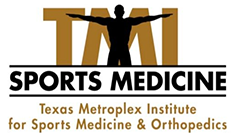
Myelopathy is a term used to refer to diseases that affect the spinal canal. Some of the common myelopathy diseases include carcinomatous myelopathy (degeneration of spinal cord associated with cancer), compressive myelopathy (changes in the spine because of pressure from hematomas or masses) and radiation myelopathy (spine destruction because of X-ray therapy).
Causes of Myelopathy
The most common causes of myelopathy are trauma to the spinal cord because of vertebral fracture or dislocation, herniated disc, osteoarthritis of the spine and tumors. Other causes include viral infections, immune reactions and inadequate flow of blood through vessels of the spinal cord. It can occur at any age.
Symptoms of Myelopathy
Cervical spondylotic myelopathy (CSM) is the most common disorder and it occurs in individuals aged above 55 years. Repeated trauma from activities such as carrying heavy loads or sports (gymnastics) increases the risk of CSM. The gradual wear and tear because of aging causes narrowing of the spinal canal that leads to compression of the spinal cord. This may cause symptoms such as:
- Pain and stiffness in the neck
- Loss of balance and coordination – difficulty in walking and performing simple tasks
- Tingling sensation and numbness
- Weakness
Diagnosis of Myelopathy
Your doctor may ask about your symptoms and examine your neck to look for any abnormal reflexes, numbness and atrophy of muscles. Some of the diagnostic tests such as X-rays, magnetic resonance imaging and myelogram may be done to confirm the diagnosis. Myelogram is a special type of computed tomography (CT) scan in which a dye is injected prior to the scan to get a clearer outline of the spinal cord.
Treatment Options for Myelopathy
Nonsurgical Treatment for Myelopathy
Nonsurgical methods provide sufficient relief from the symptoms in most cases. These options include:
- Soft collars: Soft collars can be worn to allow the neck muscles to rest and restrict neck movements. This also helps in decreasing the pinching of nerve roots during movement.
- Exercise: Simple exercises help to improve the strength and flexibility of your neck.
- Nonsteroidal anti-inflammatory drugs (NSAIDs): Medications such as aspirin and ibuprofen can be taken to reduce swelling and pain.
- Epidural steroid injections: Cortisone injections are given directly into the epidural space to decrease swelling as well as pain.
Surgical Treatment for Myelopathy
Surgery of the spine is considered in case your symptoms do not alleviate with the conservative treatment methods. Spinal surgery involves anterior decompression (relieving pressure) of the spinal cord and nerve roots. During the procedure, certain plates and screws may be inserted to give internal support to the cervical spine and promote healing of the bone graft.










